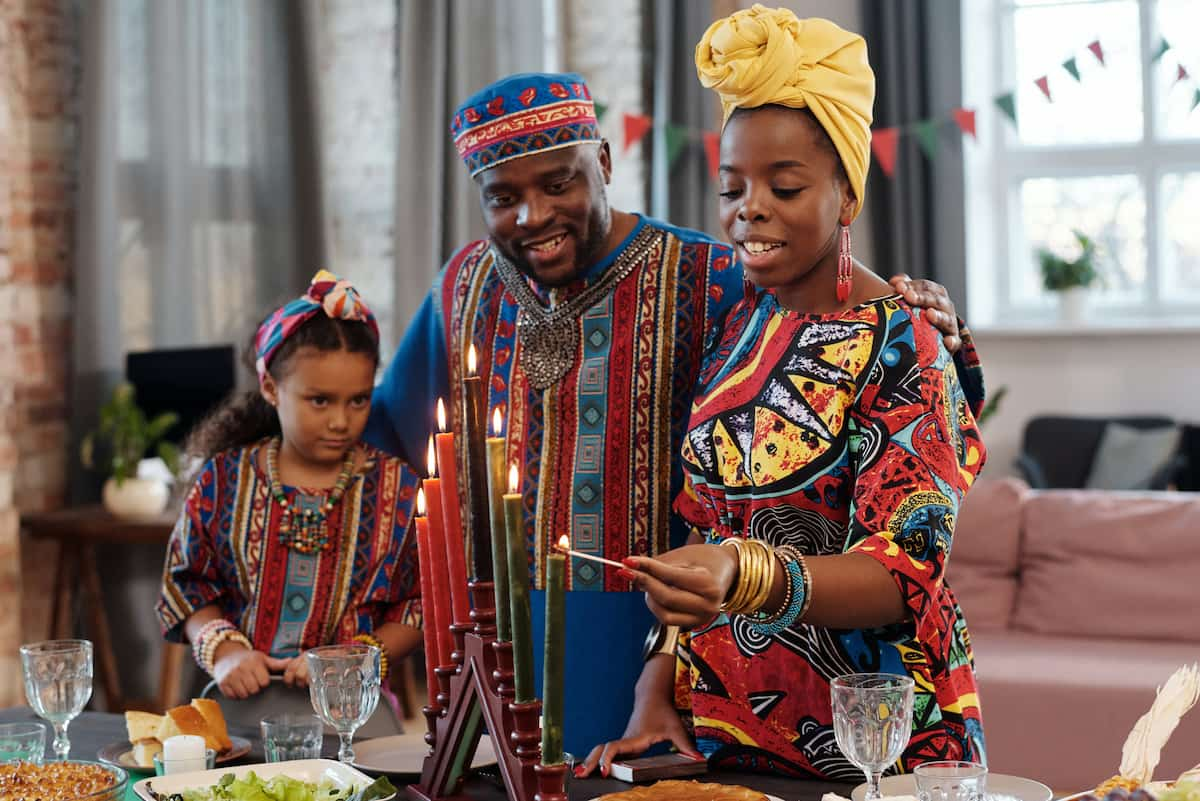As the hues of autumn paint the world around us, it’s that time of the year when we gather around tables to count our blessings and express gratitude. However, the fourth Sunday of November is a special day for black people. It’s the day they mark the Umoja Karamu Celebration.
A celebration that acknowledges the black culture and promotes unity within the community. Read on to learn about this special Thanksgiving for black people and how it’s celebrated.
Become an insider. Subscribe to our newsletter for more top trending stories like this!
Join our Spotcovery Global Black Community Facebook Group for early access to exclusive content and to share in a lively discussion.
About Umoja Karamu Celebration
Dr. Edward Sims, Jr. started the Umoja Karamu celebration in 1971. Umoja Karamu means “unity feast” in Swahili, an African-American celebration celebrated like Thanksgiving. The purpose of the celebration is to instill black values, solidarity, and appreciation of black heritage into black families.
Prayers, historical readings, libations to honor ancestors, and feasts mark the Umoja Karamu celebration. The Umoja Karamu observance centers on five periods of African-American lives, each represented by a color to be used in the ceremony. You can check Amazon for books that explain the five periods in African-American lives.
Below are the different colors and the different periods they represent:
- Black color: Black people residing in Africa before the slave trade
- White: The tearing apart of black families during the slave trade
- Red: The liberation of black people from slavery
- Gold (or orange): Looking into the future and hoping for better days.
People Also Read: The Ultimate Guide to Planning a Celebration of Life For a Loved One – For Blacks & African-Americans
The five colors are often represented in the food served during the ceremony. However, don’t forget to check Amazon for what you’ll need for your Umoja Karamu observance.
How Is Umoja Karamu Celebrated?
There are two ways to celebrate the Umoja Celebration – a home observance and a community observance. Both methods typically include libation to honor ancestors, prayer, readings, and enjoying the many dishes.
Home Celebration
The home celebration of Umoja Karamu often proceeds according to the following order:
Become an insider. Subscribe to our newsletter for more top trending stories like this!
- Prayer
- Pouring out of a drink as an offering to the family’s ancestors (Libation)
- Playing the music, reading the narratives, and passing the food (Period Presentations)
- Feast
Community Observance
Community celebration follows almost the same approach as family observance. Below are a few additions:
- You should set a place to honor the ancestors at the table, and at the end of the celebration, take its drinks and food outside to share with nature.
- Elderly people present should share words of encouragement and advice at the end of the ceremony.
- Share all leftover food and drinks among the homeless and poor people in the community.
People Also Read: What Thanksgiving Day Means to African Americans
Umoja Karamu (pronounced You-mo-ja Care-a-moo) is a unity feast African Americans celebrate. And it’s held on the fourth Sunday of November annually. It’s a time for black people to acknowledge their roots and remember the battles their ancestors fought and won.
You can mark this celebration at home as a family or a group as a community. The steps shared in this article are ways to mark the day. However, you can get a book on Amazon to learn more about how to plan and celebrate the Umoja Karamu if you need more insight.
People Also Read: Why People of African Heritage Don’t Celebrate Columbus Day
Nearly 80% of consumers visit directories with reviews to find a local business. List your business for free in our exclusive Spotcovery Black-Owned Business Directory.
Spotcovery offers unique and fresh daily content on Black culture, lifestyle, and experiences. We talk about everything black, black people, black-owned and black-owned businesses. We also deliver authentic and relevant content that will inform, inspire, and empower you! The future of black media is critical to today’s black experience! Our primary audience includes African Americans, Africans, Afro-Caribbean, and people of African heritage. Black culture is for the culture!
Become an insider. Subscribe to our newsletter for more top trending stories like this!





